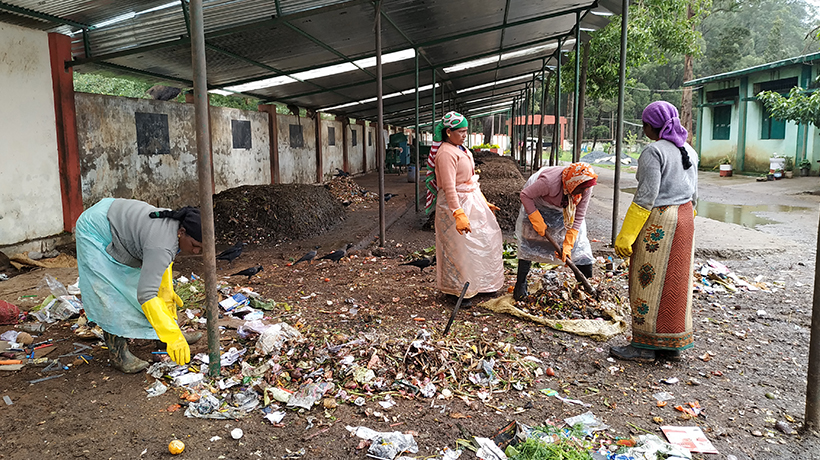Trending Now
- “If Edappadi Palaniswami permits, a thousand young members from the Virudhunagar district AIADMK are prepared to take up arms and engage in battle under my command.” – Former AIADMK Minister Rajendra Balaji
- “India is ready to deal with any counter-attack by Pakistan” – Wing Commander Vyomika Singh
- Central govt orders extension of CBI Director Praveen Sood’s tenure for another year
Coimbatore
Nilgiris Corporation makes natural Fertilisers
![]() August 13, 2019
August 13, 2019
The Nilgiris Corporation has produced natural vermin-compost fertilisers and successfully sold 17 tonnes.
Nilgiris district executive officer P Nataraj said, “Since there is popular demand for natural fertilisers in the Nilgiris, a massive exercise was undertaken by the Nilgiris sanitary department to produce vermi-compost at Ketti township near Coonoor.”
Ketti has 18 wards and 68 villages. Sanitary workers did door-to-door collection of segregated waste, separating degradable and non-degradable stuff. Personal collection was done in 15 wards while the other three wards put them in public garbage bins.
Ketti generates about 1 tonne of such waste daily. This garbage is usually loaded onto trucks and dumped at the Prakasapuram landfill park. There sanitary workers segregate glass, thermocol, electronics, rubber, iron and plastic and other non-degradable stuff. Subsequently, degradable items like fruit and vegetable and garden waste are kept separately in large bins into which treated solid wastes and water was sprinkled. Depending on temperature and humidity, decay sets in and this gets changed to fertilisers within 45-60 days.
They are stored in large bins and sold to eager farmers for their farms. This fertiliser is good for growing vegetables and gives bountiful harvests, he said. Fertiliser was sold for Rs 4 a kg and from January to July nearly 17 tonnes was sold. This move comes in tandem with the total plastic ban order to be imposed in Nilgiris district from August 15.
Nataraj added, “Since most of Nilgiri farmers use chemical fertilisers and pesticides soil quality had been going down. Also, harvests were decreasing in quality and quantity and farmers were facing loss of income.
“Organic farming is gaining importance in the Nilgiris. This type of agriculture does not disturb or pollute the natural wealth and gives good harvest. We need to enrich soil fertility with organic farming.”























